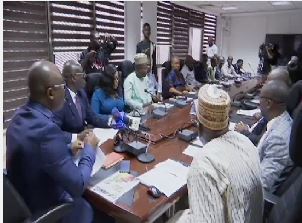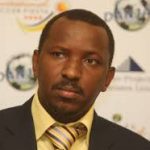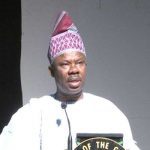 Eighteen lecturers from six Universities across the six geo-political regions in Nigeria are to be trained on the use of OpendTect Seismic Interpretation Software to help equip them with the skills needed to then train geology students.
Eighteen lecturers from six Universities across the six geo-political regions in Nigeria are to be trained on the use of OpendTect Seismic Interpretation Software to help equip them with the skills needed to then train geology students.
Helen Osamede-Akins reports that Nigeria is a petroleum rich country and an oil and gas producing member of the organisation of petroleum corporations since 1969.
The advent of oil production turned Nigeria from a multi-sectoral economy to a mono-economy, with oil and gas providing about 95 percent of export
earnings and 70per cent of government revenue but only a few of its citizens are involved in this sector.
Employers in the oil and gas sector have often claimed that the Nigerian youth do not have the right skills to be employed in this sector.
In closing this gap, some Nigerian lecturers have been selected to undergo special training on the latest soft ware that are used for the
interpretation of scientific Data.
For the lecturers who have been picked for the pilot scheme, they believe the training will open doors for more Geoscientists in the country.
By the end of the training, it is expected that there will be increase in the employment potentials of students after graduation thereby reducing
their exposure to violence and criminal activities.
 Eighteen lecturers from six Universities across the six geo-political regions in Nigeria are to be trained on the use of OpendTect Seismic Interpretation Software to help equip them with the skills needed to then train geology students.
Eighteen lecturers from six Universities across the six geo-political regions in Nigeria are to be trained on the use of OpendTect Seismic Interpretation Software to help equip them with the skills needed to then train geology students.
Helen Osamede-Akins reports that Nigeria is a petroleum rich country and an oil and gas producing member of the organisation of petroleum corporations since 1969.
The advent of oil production turned Nigeria from a multi-sectoral economy to a mono-economy, with oil and gas providing about 95 percent of export
earnings and 70per cent of government revenue but only a few of its citizens are involved in this sector.
Employers in the oil and gas sector have often claimed that the Nigerian youth do not have the right skills to be employed in this sector.
In closing this gap, some Nigerian lecturers have been selected to undergo special training on the latest soft ware that are used for the
interpretation of scientific Data.
For the lecturers who have been picked for the pilot scheme, they believe the training will open doors for more Geoscientists in the country.
By the end of the training, it is expected that there will be increase in the employment potentials of students after graduation thereby reducing
their exposure to violence and criminal activities.
 Eighteen lecturers from six Universities across the six geo-political regions in Nigeria are to be trained on the use of OpendTect Seismic Interpretation Software to help equip them with the skills needed to then train geology students.
Eighteen lecturers from six Universities across the six geo-political regions in Nigeria are to be trained on the use of OpendTect Seismic Interpretation Software to help equip them with the skills needed to then train geology students.
Helen Osamede-Akins reports that Nigeria is a petroleum rich country and an oil and gas producing member of the organisation of petroleum corporations since 1969.
The advent of oil production turned Nigeria from a multi-sectoral economy to a mono-economy, with oil and gas providing about 95 percent of export
earnings and 70per cent of government revenue but only a few of its citizens are involved in this sector.
Employers in the oil and gas sector have often claimed that the Nigerian youth do not have the right skills to be employed in this sector.
In closing this gap, some Nigerian lecturers have been selected to undergo special training on the latest soft ware that are used for the
interpretation of scientific Data.
For the lecturers who have been picked for the pilot scheme, they believe the training will open doors for more Geoscientists in the country.
By the end of the training, it is expected that there will be increase in the employment potentials of students after graduation thereby reducing
their exposure to violence and criminal activities.
 Eighteen lecturers from six Universities across the six geo-political regions in Nigeria are to be trained on the use of OpendTect Seismic Interpretation Software to help equip them with the skills needed to then train geology students.
Eighteen lecturers from six Universities across the six geo-political regions in Nigeria are to be trained on the use of OpendTect Seismic Interpretation Software to help equip them with the skills needed to then train geology students.
Helen Osamede-Akins reports that Nigeria is a petroleum rich country and an oil and gas producing member of the organisation of petroleum corporations since 1969.
The advent of oil production turned Nigeria from a multi-sectoral economy to a mono-economy, with oil and gas providing about 95 percent of export
earnings and 70per cent of government revenue but only a few of its citizens are involved in this sector.
Employers in the oil and gas sector have often claimed that the Nigerian youth do not have the right skills to be employed in this sector.
In closing this gap, some Nigerian lecturers have been selected to undergo special training on the latest soft ware that are used for the
interpretation of scientific Data.
For the lecturers who have been picked for the pilot scheme, they believe the training will open doors for more Geoscientists in the country.
By the end of the training, it is expected that there will be increase in the employment potentials of students after graduation thereby reducing
their exposure to violence and criminal activities.
 Eighteen lecturers from six Universities across the six geo-political regions in Nigeria are to be trained on the use of OpendTect Seismic Interpretation Software to help equip them with the skills needed to then train geology students.
Eighteen lecturers from six Universities across the six geo-political regions in Nigeria are to be trained on the use of OpendTect Seismic Interpretation Software to help equip them with the skills needed to then train geology students.
Helen Osamede-Akins reports that Nigeria is a petroleum rich country and an oil and gas producing member of the organisation of petroleum corporations since 1969.
The advent of oil production turned Nigeria from a multi-sectoral economy to a mono-economy, with oil and gas providing about 95 percent of export
earnings and 70per cent of government revenue but only a few of its citizens are involved in this sector.
Employers in the oil and gas sector have often claimed that the Nigerian youth do not have the right skills to be employed in this sector.
In closing this gap, some Nigerian lecturers have been selected to undergo special training on the latest soft ware that are used for the
interpretation of scientific Data.
For the lecturers who have been picked for the pilot scheme, they believe the training will open doors for more Geoscientists in the country.
By the end of the training, it is expected that there will be increase in the employment potentials of students after graduation thereby reducing
their exposure to violence and criminal activities.
 Eighteen lecturers from six Universities across the six geo-political regions in Nigeria are to be trained on the use of OpendTect Seismic Interpretation Software to help equip them with the skills needed to then train geology students.
Eighteen lecturers from six Universities across the six geo-political regions in Nigeria are to be trained on the use of OpendTect Seismic Interpretation Software to help equip them with the skills needed to then train geology students.
Helen Osamede-Akins reports that Nigeria is a petroleum rich country and an oil and gas producing member of the organisation of petroleum corporations since 1969.
The advent of oil production turned Nigeria from a multi-sectoral economy to a mono-economy, with oil and gas providing about 95 percent of export
earnings and 70per cent of government revenue but only a few of its citizens are involved in this sector.
Employers in the oil and gas sector have often claimed that the Nigerian youth do not have the right skills to be employed in this sector.
In closing this gap, some Nigerian lecturers have been selected to undergo special training on the latest soft ware that are used for the
interpretation of scientific Data.
For the lecturers who have been picked for the pilot scheme, they believe the training will open doors for more Geoscientists in the country.
By the end of the training, it is expected that there will be increase in the employment potentials of students after graduation thereby reducing
their exposure to violence and criminal activities.
 Eighteen lecturers from six Universities across the six geo-political regions in Nigeria are to be trained on the use of OpendTect Seismic Interpretation Software to help equip them with the skills needed to then train geology students.
Eighteen lecturers from six Universities across the six geo-political regions in Nigeria are to be trained on the use of OpendTect Seismic Interpretation Software to help equip them with the skills needed to then train geology students.
Helen Osamede-Akins reports that Nigeria is a petroleum rich country and an oil and gas producing member of the organisation of petroleum corporations since 1969.
The advent of oil production turned Nigeria from a multi-sectoral economy to a mono-economy, with oil and gas providing about 95 percent of export
earnings and 70per cent of government revenue but only a few of its citizens are involved in this sector.
Employers in the oil and gas sector have often claimed that the Nigerian youth do not have the right skills to be employed in this sector.
In closing this gap, some Nigerian lecturers have been selected to undergo special training on the latest soft ware that are used for the
interpretation of scientific Data.
For the lecturers who have been picked for the pilot scheme, they believe the training will open doors for more Geoscientists in the country.
By the end of the training, it is expected that there will be increase in the employment potentials of students after graduation thereby reducing
their exposure to violence and criminal activities.
 Eighteen lecturers from six Universities across the six geo-political regions in Nigeria are to be trained on the use of OpendTect Seismic Interpretation Software to help equip them with the skills needed to then train geology students.
Eighteen lecturers from six Universities across the six geo-political regions in Nigeria are to be trained on the use of OpendTect Seismic Interpretation Software to help equip them with the skills needed to then train geology students.
Helen Osamede-Akins reports that Nigeria is a petroleum rich country and an oil and gas producing member of the organisation of petroleum corporations since 1969.
The advent of oil production turned Nigeria from a multi-sectoral economy to a mono-economy, with oil and gas providing about 95 percent of export
earnings and 70per cent of government revenue but only a few of its citizens are involved in this sector.
Employers in the oil and gas sector have often claimed that the Nigerian youth do not have the right skills to be employed in this sector.
In closing this gap, some Nigerian lecturers have been selected to undergo special training on the latest soft ware that are used for the
interpretation of scientific Data.
For the lecturers who have been picked for the pilot scheme, they believe the training will open doors for more Geoscientists in the country.
By the end of the training, it is expected that there will be increase in the employment potentials of students after graduation thereby reducing
their exposure to violence and criminal activities.













